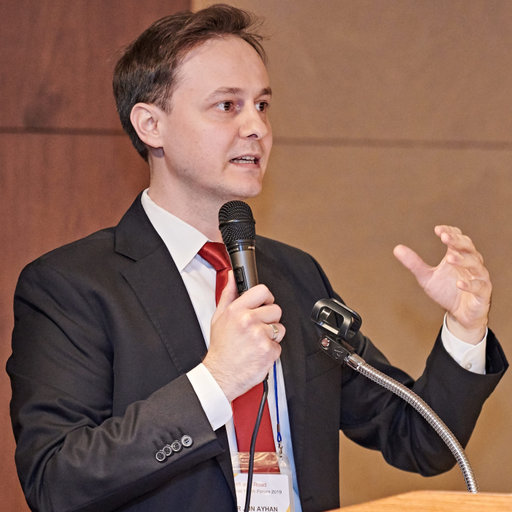Graduate School of International Studies

Graduate School of International Studies
Korea is relatively a late-comer in the global public diplomacy scene. However, some unique initiatives come out of the country and attract the attention of the global public diplomacy community. Last month, I was invited to give a lecture to the University of Southern California students on Korean public diplomacy. Among other things, the participants showed much interest in four Korean public diplomacy initiatives. I plan to write about them in this column.
Korea officially initiated public diplomacy policies in 2010 (there were similar initiatives under different names previously). One of the first initiatives that Korean Ministry of Foreign Affairs (MOFA) under Ambassador Ma Youngsam’s leadership introduced was programs that were designed and implemented by citizens and/ or foreign residents in Korea and sponsored by MOFA. Among them, Ewha Womans University has hosted a few conferences and events on Korean public diplomacy since 2014.
MOFA discontinued most of these programs after staff changes, but the Korea Foundation took over the “citizen-participated public diplomacy” project. In many respects, it is a unique project with very significant benefits for Korean public diplomacy. The United States and Israel have similar programs. The US program is very comprehensive both in terms of geography and also topics covered, but it involves too much red tape for ordinary public to take part in. The Israeli program had been a very much government-led initiative utilizing citizens to tell Israel’s story to the world. On the other hand, KF’s program invites Korean people and/or foreign residents to build teams, design and implement public diplomacy projects with sponsorship from KF. The program saves much tax money by not paying for very innovative project ideas, as well as for the staff’s salaries who are involved in the project. It only pays for the program costs, some of which are shared by the applicants. In addition to their innovative ideas, expertise, and voluntary (unpaid) participation in the programs that they designed, participants get to meet their international counterparts on an equal footing in people-to-people to exchanges. This facilitates effective contact and genuine dialogue between Korean and other societies which can be sustained by the same participants in a friendly way which is difficult to be implement and sustained in the case of government-initiated programs.
Second initiative is Public Diplomacy Week, also organized by KF, the only one of its kind worldwide to my knowledge. While it is a festive week to celebrate diversity and two-way friendship with international participants who get to share their experiences and culture, its main purpose is to inform and empower Korean citizens about public diplomacy, in turn increasing support for public diplomacy policies and program which requires their approval and active participation.
Third is KF’s support for Korean universities, including Ewha Womans University, to empower their capacity to teach public diplomacy, publish textbooks on the topic and organize related events with the participation of their students. This program also aims to empower Korean public as well as creating the long-term infrastructure needed for effective public diplomacy.
The fourth is a private initiative, The Korean Association of Public Diplomacy, which is hosted at Ewha Womans University and from time to time sponsored by MOFA. To my knowledge, Korea became the first country to host a public diplomacy association, and publish the second English-language journal on public diplomacy in the world: Journal of Public Diplomacy, where I serve as the Editor-in-Chief. The Association and the Journal both aim to be part of the global conversation on public diplomacy, not only as followers, but also leading initiatives to help take the scholarship and practice of public diplomacy to the next levels.
Korea is a late-comer in the public diplomacy field, but certainly one that has certainly made its mark. I am glad that Ewha Womans University has been at the center of many of these initiatives.

